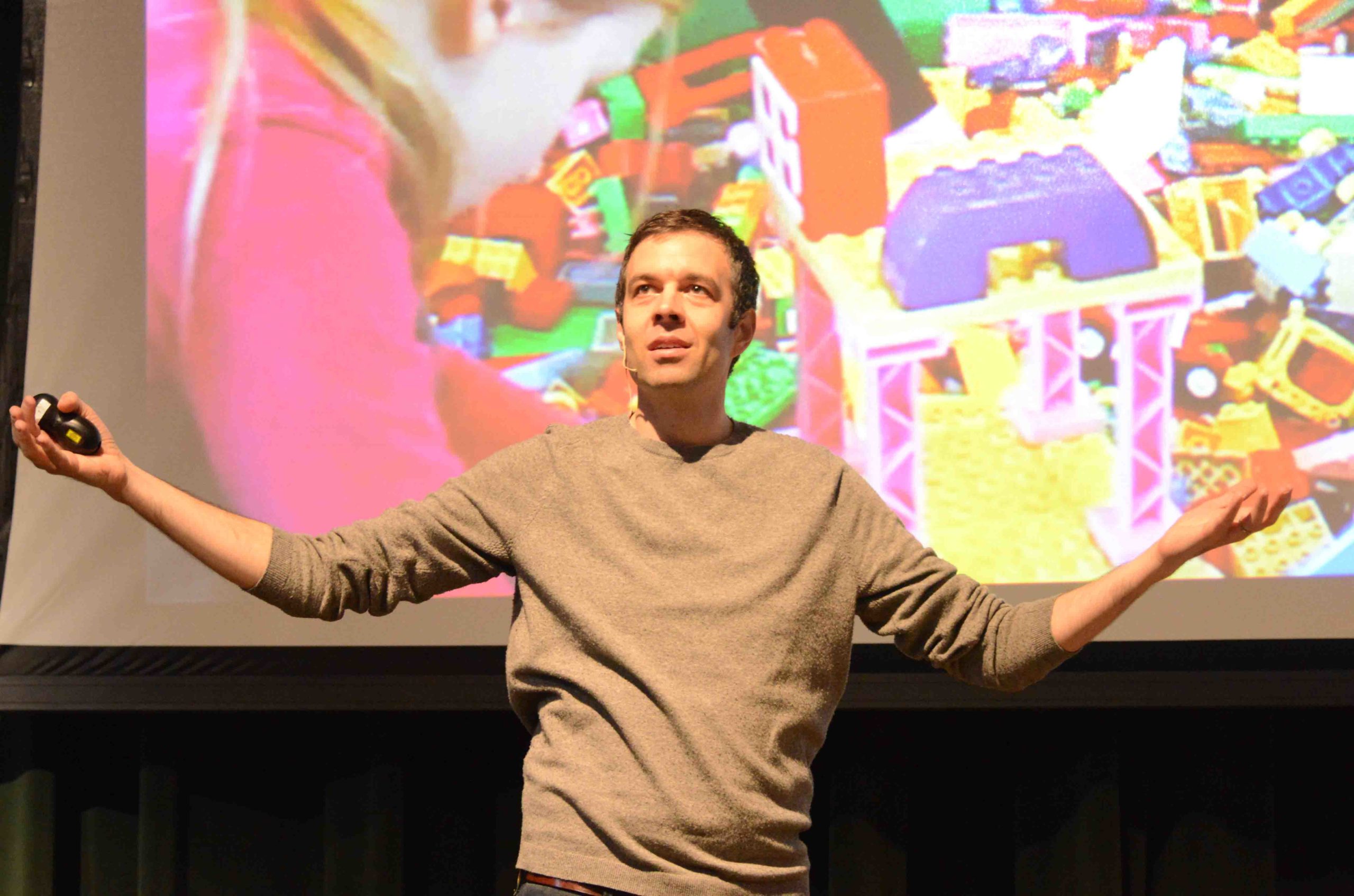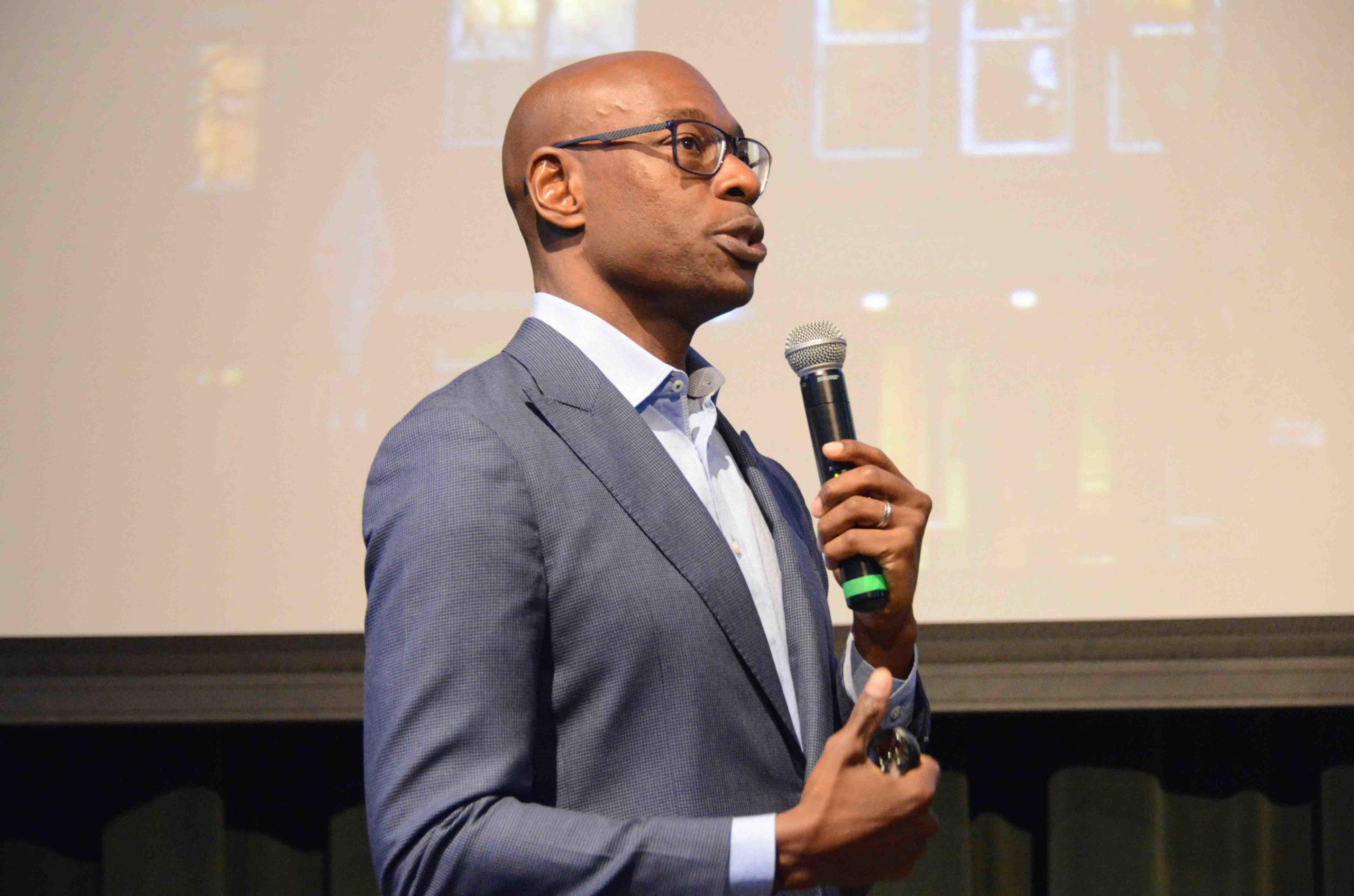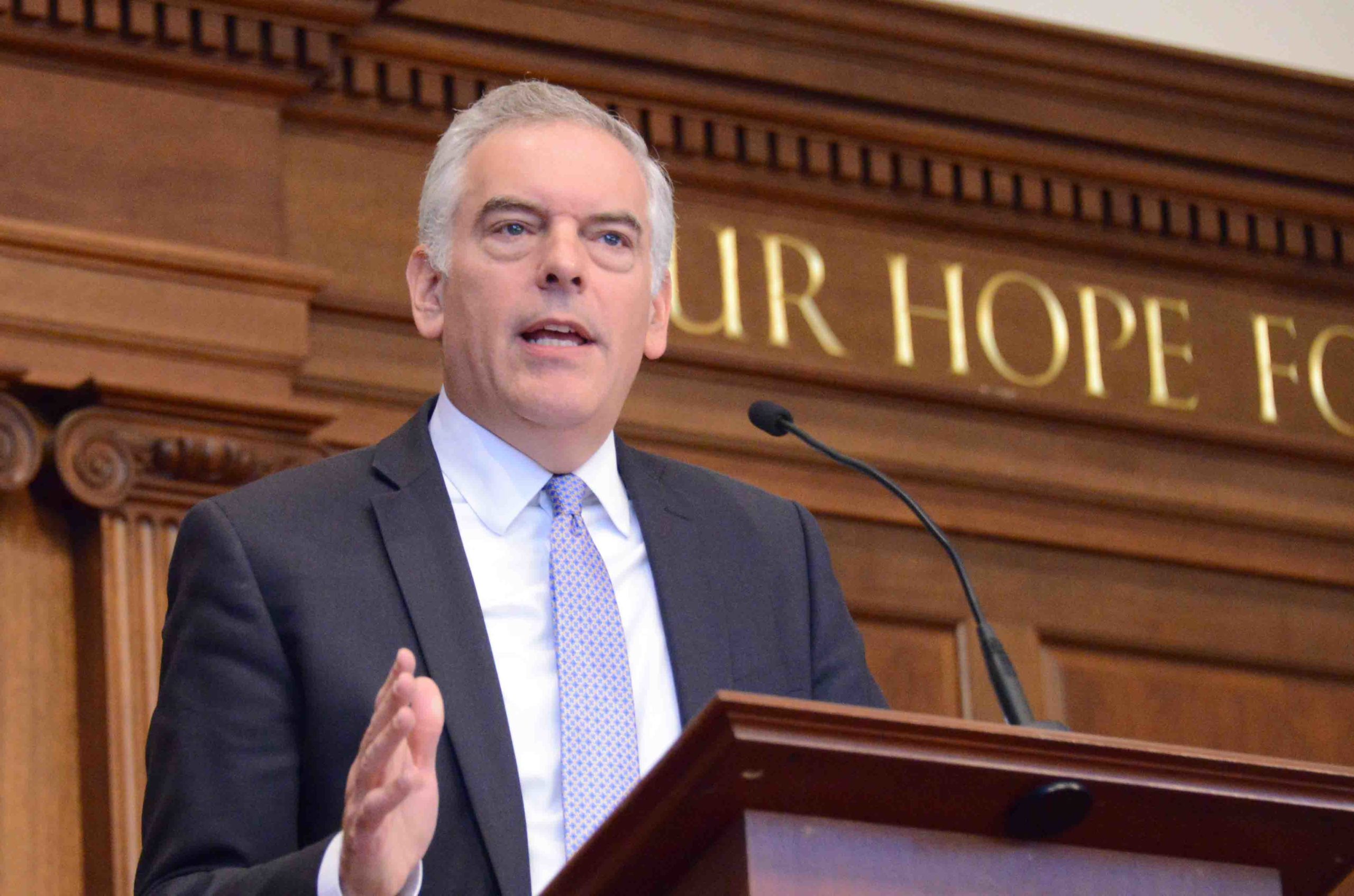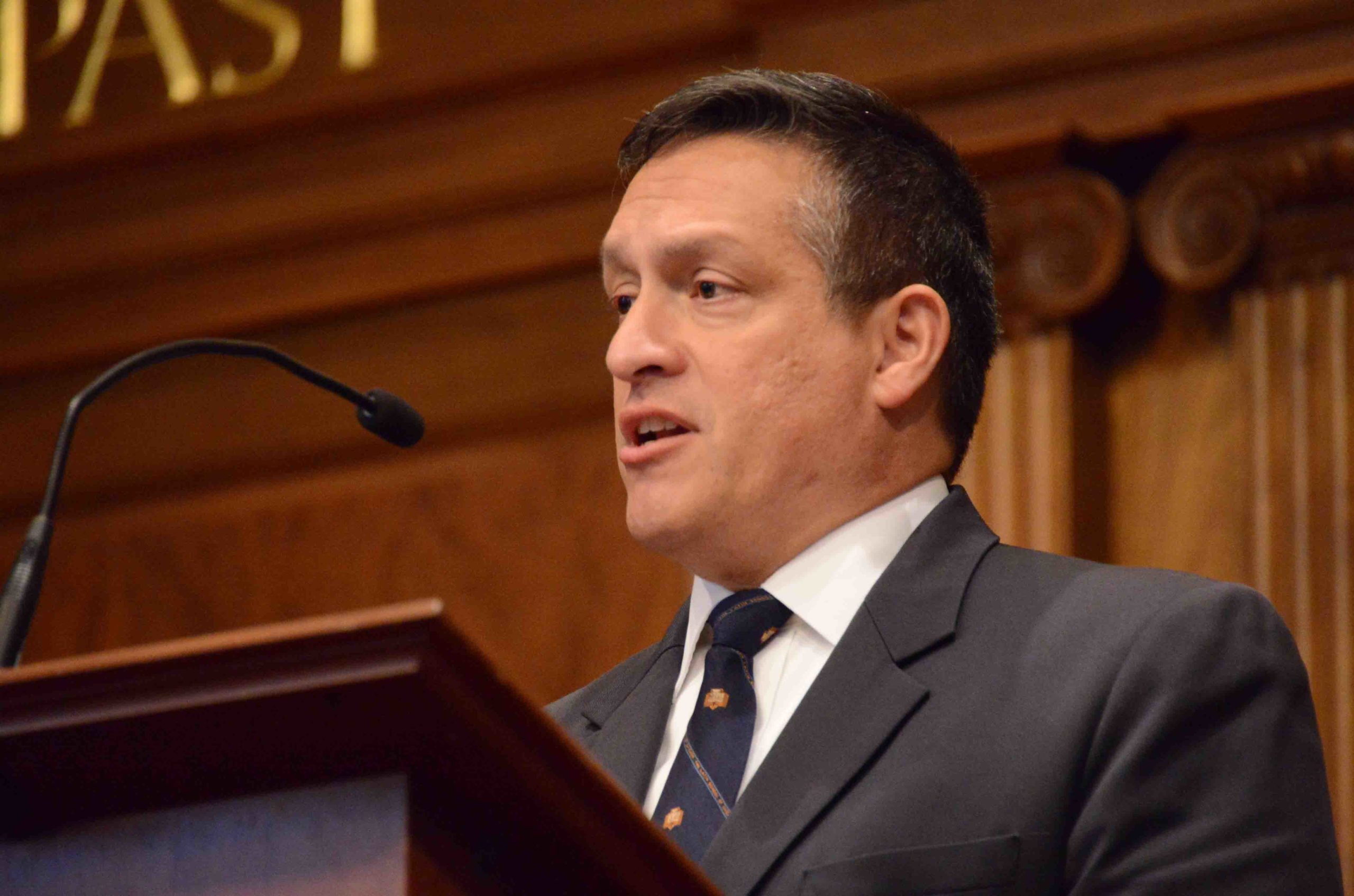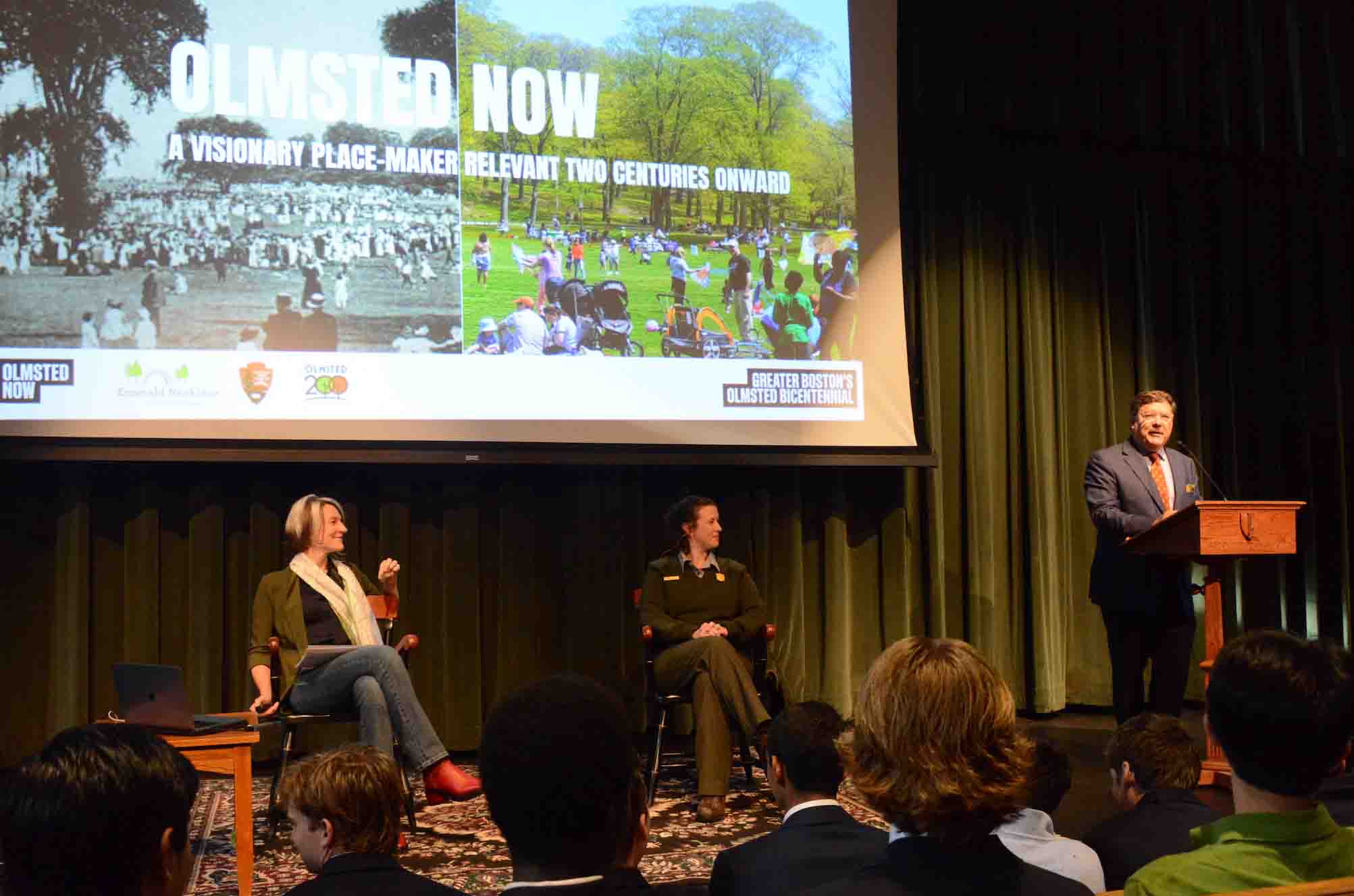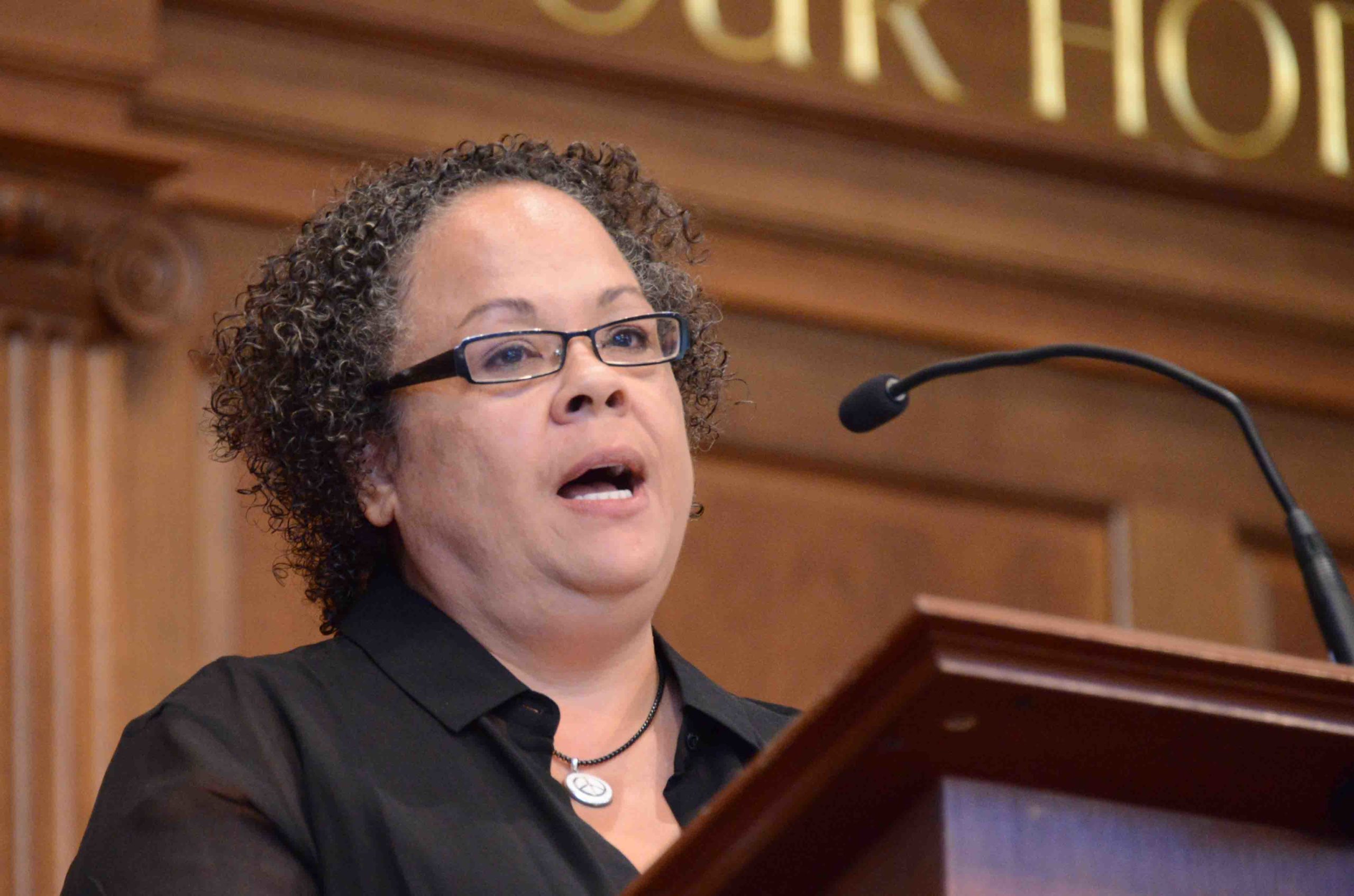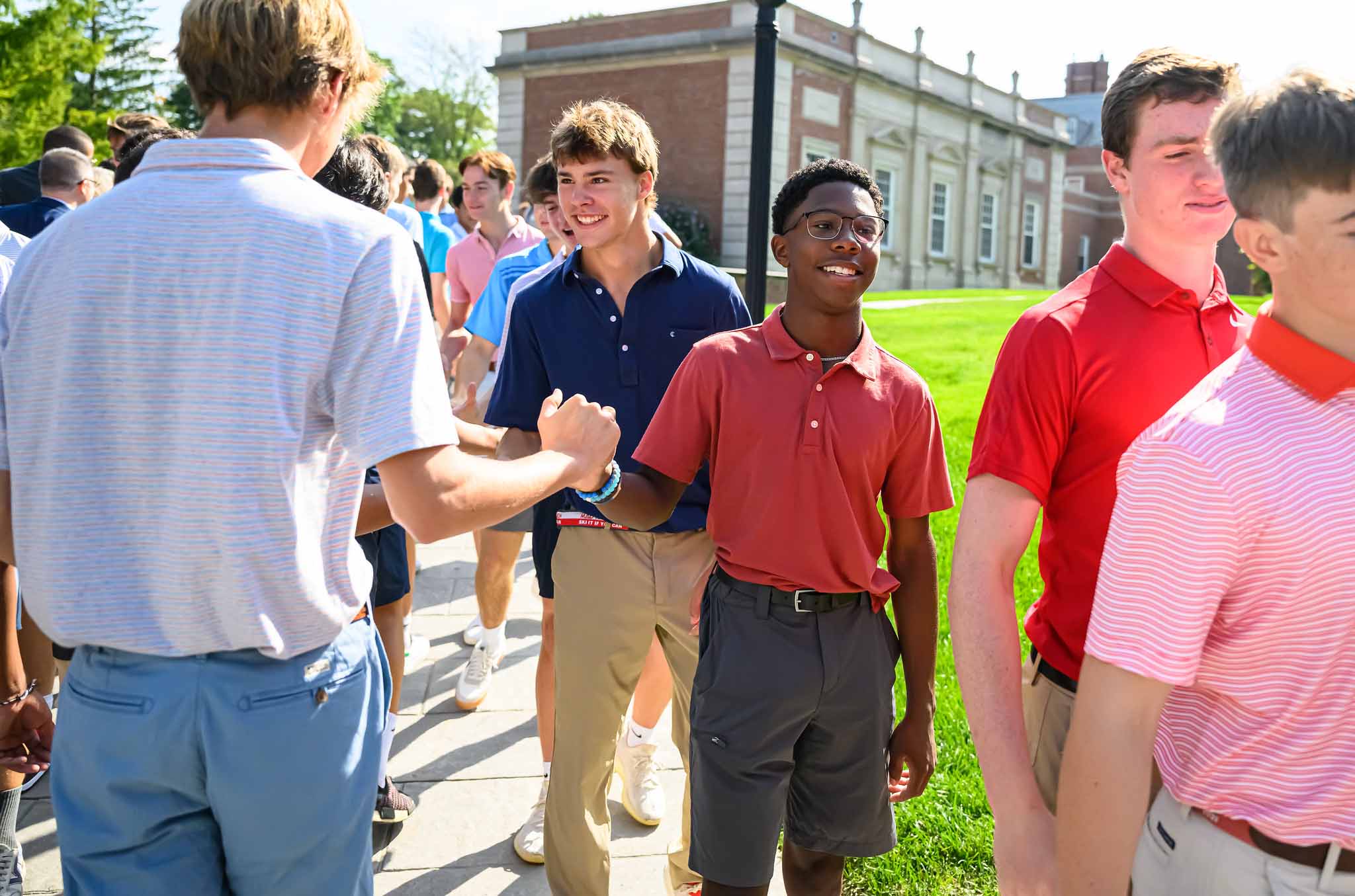“I want to talk with you this morning about what’s going on in Ukraine, and the role that the United States is playing to help the Ukrainian people,” began Matt Axelrod ’88 in Hall on October 20. “As you’ve all seen play out on your televisions and your phones, Vladimir Putin launched a brutal and unjustified war against Russia’s neighbor Ukraine. Russian troops have consistently attacked both civilian and military targets, and they’ve committed war crimes against the Ukrainian people in cities like Bucha and Mariupol.
“I imagine that the war can feel far away to you. Unless you’ve done a lot of Model UN, you probably had never heard the names Bucha and Mariupol until this year. But what’s happening now isn’t something you just read about in history class. It’s real life for kids just like you. Kids who are just going to school, living their lives, making TikTok videos, and playing soccer—and who now have to flee their war-torn country because of Russian tanks and missiles.”
Last winter, Matt Axelrod was confirmed by the Senate to serve as Assistant Secretary for Export Enforcement at the U.S. Department of Commerce’s Bureau of Industry and Security. In this role, Matt leads an elite group of special agents and analysts dedicated to the enforcement of the country’s export control laws. They work to protect and promote U.S. national security and foreign policy objectives by stopping the export of sensitive goods and technologies that can be put to malign use—like weapons-of-mass-destruction proliferation, terrorism, and human rights abuses.
“In my current job,” Matt said, “I supervise a federal law enforcement organization, which is composed of special agents with guns and badges who police our country’s export laws. In other words, they do the criminal investigations of people and companies that send U.S. goods and technologies abroad for purposes contrary to our national security. Simply put, they work to keep the country’s most sensitive items out of the world’s most dangerous hands.”
Matt went on to discuss the complications of “dual use” technologies—software or devices that are capable of military use, but are also capable of non-military, civilian use, like the graphics processing unit (GPU) inside an Xbox or PlayStation.
“Because those GPUs accelerate the creation and review of images by processing many items of data simultaneously, they’re also being used by the Russian government to silence dissent by monitoring, identifying, and arresting protestors. They’re also being used by the Chinese government to track and confine their minority Uyghur Muslim population. So our job is to make sure that U.S. companies can sell the technology being used for gaming consoles, but not the technology that helps the Russian or Chinese governments repress their populations.”
Matt went on to describe the various ways in which his team develops and enforces policies that keep these dual-use technologies out of the hands of potentially dangerous individuals; and, he underscored, they’re working.
“Since the first new Russia export controls went into effect in February, total U.S. exports to Russia have dropped almost 86% by value. So far, we’ve prevented 250 shipments worth $93 million from going to Russia. We’ve seen public reporting of Russian defense industries—including tank, space, and drone companies—being unable to obtain the spare parts they need to support their war efforts in Ukraine… And none other than Vladimir Putin himself assessed in mid-July that, ‘The almost complete closure of access to foreign high-tech products is a huge challenge for our country.’”
Following Headmaster Brennan’s introduction of him, Matt stepped up to the lectern, thanked Mr. Brennan, and then—to the audience’s delight—offered what he called an “alternate introduction.” Matt’s introduction of himself was not the highlight reel that Mr. Brennan had enlisted in describing Matt’s accomplishments, but rather a litany of failed attempts and false starts, missteps and misdirections that—together with his many, shining achievements—helped Matt arrive where he is today.
“I offer that alternate introduction for a reason,” stated Matt. “I want you all to know that the people who speak from this podium—whether it’s Mr. Brennan, or me, or some visiting luminary—none of us had a straight line path of unalloyed success with accomplishment after accomplishment, good thing after good thing. That’s a myth, just like the lives you see on other kids’ seemingly perfect Instagram feeds. All of us, kids and adults, are a mix of success and failure, of good luck and bad, of advances and setbacks. What’s important is that, over time, you continue to have faith in yourself, persist in your efforts and hopefully keep your overall trajectory moving in the right direction.”
A longtime public servant with both criminal and national security experience, Matt spent more than 13 years at the Department of Justice. As an Assistant U.S. Attorney in the Southern District of Florida, he prosecuted a number of high-profile cases, including those involving drug cartels, corrupt public officials, and Cuban spies. After six years in Miami, Matt was assigned to Department of Justice headquarters in Washington, D.C., where he served in several capacities, including as the Principal Associate Deputy Attorney General, one of the Department’s highest-ranking officials, in which he advised the Attorney General on the Department’s most consequential criminal and national security enforcement matters.
Matt also previously served as Special Counsel in the Office of the White House Counsel, where he worked on both domestic and national security matters, and as a partner in an international law firm, where he conducted internal investigations and white-collar defense work. Matt graduated from Amherst College with a degree in English, and he earned his law degree from Yale. In the two years between college and law school, Matt was involved with City Year—a forerunner and inspiration for the AmeriCorps service program—and with the Anti-Defamation League. “In short,” Mr. Brennan concluded, “Matt has enlisted his ability to do great work, in order to do good work, as well.”
“There’s a Latin inscription in the interior central courtyard at DOJ Headquarters in Washington,” Matt concluded. “It says, ‘Privilegium obligadio.’ Mr. Randall—who is not only my advisor and English teacher, but also my Latin teacher—may correct me both on the pronunciation and the translation, but I believe it translates roughly as, ‘Where there is a privilege, there is an obligation.’ Or, to put it in a more familiar way, ‘From those to whom much has been given, much will be expected.’
“You’ve all been given the incredible privilege of attending RL. As I’m sure you know by now, that privilege means you have an obligation to do some good in the world. So once you’re done with your math quizzes, and your cross country practices, and Homecoming, and you’re eventually thinking about how you want to spend your professional life, I’d encourage you to consider government service.”
View Matt Axelrod’s Hall in its entirety.


